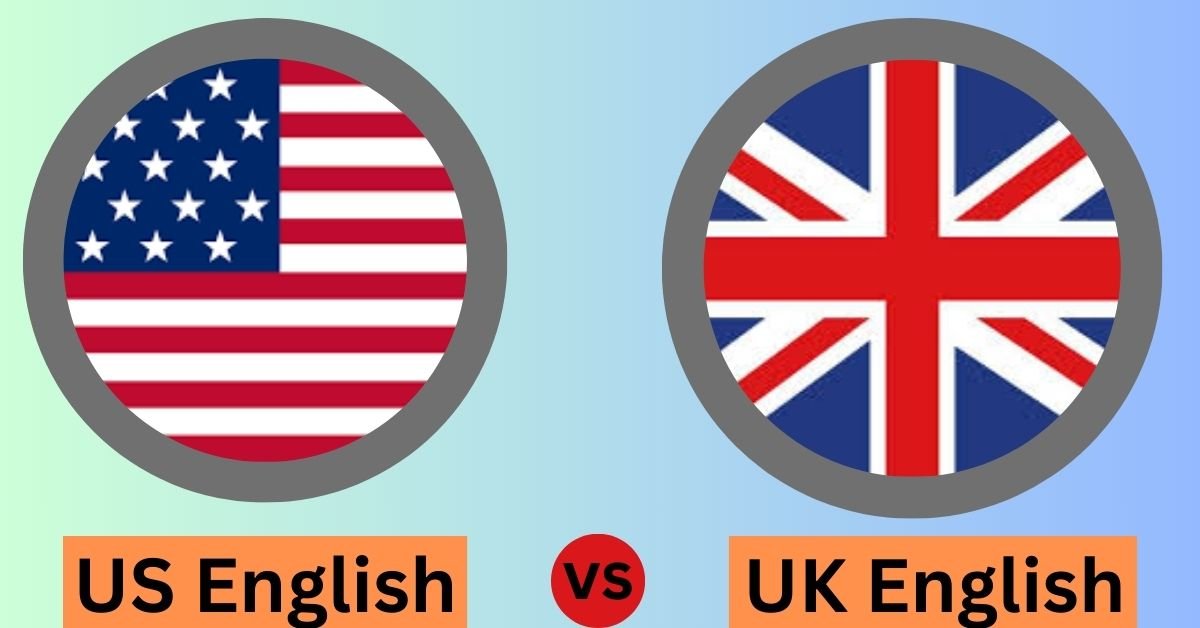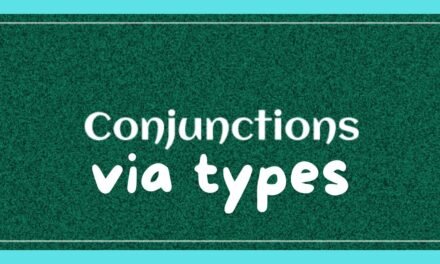In this post “US vs UK English Register differences” you will learn all about basic to advanced US vs UK English Register differences that are very common all over the world. The English language boasts a rich tapestry of variations, with US English (AmE) and UK English (BrE) being two of the most prominent dialects. While they share a common root, centuries of independent development have led to fascinating differences in vocabulary, grammar, spelling, pronunciation, and even cultural references. Understanding these US vs UK English register differences is crucial for clear communication across the Atlantic.
US vs UK English Register differences
US English (AmE)
The dialect of English is spoken and written in the United States.
UK English (BrE)
The dialect of English is spoken and written in the United Kingdom.
What is “Register” in US vs UK English Differences?
In linguistics, “register” refers to the specific variety of a language used in a particular context or situation. Here, “register” highlights the different “versions” of English used in the US and UK. These versions, or dialects, demonstrate variations in:
Spelling Differences, Item Differences, Grammar differences, Sentence Structure differences, Pronunciation differences, and more…
US vs UK English Register differences are mostly searched topics for the people who want to learn English accent. Have you ever ordered “chips” at a restaurant in the UK and ended up with fries instead? Or maybe chuckled at a British friend’s mention of a “mobile phone”? Welcome to the wonderful world of US vs. UK English register differences! These two dialects, though sharing a common root, have developed unique quirks in vocabulary, grammar, spelling, and even pronunciation over centuries of geographical separation.
Understanding these variations can be the secret weapon for clear communication across the pond. Imagine the confidence of confidently navigating a conversation without wondering if your “trousers” (US: pants) will be met with raised eyebrows! This guide dives deep into the fascinating world of these two dialects, equipping you to decipher “colour” vs. “color,” master the melody of accents, and choose the perfect words for any situation. So, grab a cup of tea (or coffee, whichever floats your boat) and get ready to embark on a linguistic adventure that will transform you from a bewildered traveler to a confident communicator!
US vs UK English Register differences
This guide dives deep into the fascinating world of these two dialects, exploring the key differences in:
-
Vocabulary
Imagine yourself in a bustling London market, searching for some delicious “crisps” (potato chips in US English) to snack on. This playful example highlights the first battleground in the US vs. UK English war – vocabulary. Here, we’ll unearth a treasure trove of lexical variations, from everyday items like “truck” (US) vs. “lorry” (UK) to verbs and phrases like “trash something” (US) vs. “rubbish something” (UK). Unveiling these lexical differences will not only enhance your understanding of written text but also prevent misunderstandings in spoken communication.
-
Grammar
While the core grammatical structure remains similar, US vs UK English exhibits subtle yet impactful differences. We’ll delve into the world of verb conjugations, exploring how Americans might say “I have gotten used to it” while their British counterparts might prefer “I have got used to it.” Sentence structure also comes under the microscope, as we examine the preference for singular treatment of collective nouns in US English (e.g., “The team is playing well”) versus the more common plural treatment in UK English (e.g., “The team is playing well”). Understanding these grammatical nuances will elevate your writing and make you a more confident communicator.
-
Spelling
The realm of spelling throws another delightful twist into the mix of US vs UK English differences. Here, we’ll tackle the famous “color” vs. “colour” debate, alongside other variations like “-or” endings in BrE (e.g., “flavour”) versus “-or” in AmE (e.g., “flavor”). We’ll also explore the world of doubled consonants, where “travelled” (BrE) becomes “traveled” (US). By mastering these spelling divergences, you’ll ensure your writing appears polished and professional, regardless of the audience.
-
Pronunciation
The melody of language adds another layer to the US vs UK English tapestry. This section will transport you to the captivating world of accents, where we’ll explore the differences in vowel sounds (think the broader “a” in US English “bath” compared to the flatter UK sound). Consonant pronunciation also comes into play, as we investigate the tendency to drop the “r” sound at the end of words in US English (e.g., “ca”) versus the more pronounced “r” in UK English (e.g., “car”). Understanding these pronunciation variations will not only enhance your listening comprehension but also help you sound more like a native speaker if that’s your goal.
So, grab a cup of tea (or coffee, whichever floats your boat), and let’s embark on this linguistic adventure!
US vs UK English Word Choices
Imagine ordering “chips” at a restaurant in the UK. You might be surprised to find yourself with fries instead of potato chips! Vocabulary is where US vs UK English register differences become most apparent. Here’s a breakdown of some common examples:
-
Cultural References
US: Football (American Football), Fall (Autumn)
UK: Football (Soccer), Autumn (Autumn)
-
Everyday Items
US: Truck, Apartment, Sweater, Zipper, Cell Phone
UK: Lorry, Flat, Jumper, Zip, Mobile Phone
-
Food and Drink
US: Candy, French Fries, Sidewalk, Eggplant
UK: Sweets, Chips, Pavement, Aubergine
-
Verbs and Phrases
US: Trash (something), Gas (for a car), Schedule an appointment
UK: Rubbish (something), Petrol (for a car), Make an appointment
These are just a few examples, and the list goes on! Understanding these US vs UK English Register differences can prevent confusion and ensure clear communication. Remember, context often plays a key role – if you’re unsure, asking for clarification is always a good option.
Grammar Gremlins of US vs UK English
While the core grammatical structure remains similar, US vs UK English register differences do exist. Let’s explore some key areas:
-
Collective Nouns
US: The team is playing well. (Singular treatment)
UK: The team is playing well. (Plural treatment)
-
Past Participle
US: I have gotten used to it. (More common)
UK: I have got used to it. (More common)
-
Prepositions
US: On vacation, Inline
UK: On holiday, In a queue
-
Sentence Structure
US: I might go to the store later. (Simpler structure)
UK: I might go to the shop a bit later. (More nuanced)
These are just a few examples, and the nuances can be subtle. However, understanding these US vs. UK English register differences can elevate your writing and enhance your communication with native speakers.
- Spelling Showdown: “Color” vs. “Colour” and Beyond
The realm of spelling is another battleground in the US vs UK English register war. Here are some common divergences:
- Words ending in “-or” in BrE: Colour, Flavour, Labour, Humour (US: Color, Flavor, Labor, Humor)
- Verbs ending in “-ize” in BrE: Organize, Realize (US: Organize, Realize)
- Double consonants: Travelled (BrE), Traveled (US)
While these variations might seem insignificant, they can impact the overall professionalism of your writing. If you’re unsure about the spelling, it’s always best to consult a reliable dictionary specific to the dialect you’re using US vs UK English Register differences.
Exploring US vs UK English Pronunciation
The melody of language is another fascinating facet of US vs UK English Register differences. Here’s a glimpse into the world of accents:
-
Vowel Sounds
US: The “a” in “bath” sounds like the “a” in “father.” (Broader sound)
UK: The “a” in “bath” has a flatter sound, closer to the “a” in “cat.”
-
Consonants
US: The “r” sound is often dropped at the end of words or before consonants. (Ex: Car)
UK: The “r” sound is typically pronounced, even at the end of words. (Ex: Car)
-
Stress
US: Stress is often placed on the first syllable of a word. (Ex: HO-tel)
UK: Stress can be placed on different syllables depending on the word. (Ex: ho-TEL)
These are just a few examples, and mastering these nuances can take time and practice. However, being aware of these US vs UK English register differences can enhance your listening comprehension and make you sound more like a native speaker, if that’s your goal.
Punctuation and Idioms
While vocabulary, grammar, spelling, and pronunciation are the main battlegrounds in the US vs UK English register war, a few other areas deserve mention:
-
Punctuation:
US: Single quotation marks are used for quotes within quotes.
UK: Double quotation marks are used for quotes within quotes.
-
Idioms:
US: “Kick the bucket” (to die)
UK: “Peg out” (to die)
Understanding these US vs UK English register differences can prevent misunderstandings when encountering unfamiliar punctuation or idioms.
When to Use US vs UK English
The question of which dialect to use depends on the context:
-
Formal Writing:
If your audience is primarily from a specific region (US or UK), using the appropriate dialect is generally preferred.
For international audiences, a neutral form of English that avoids strong dialect markers might be a better choice.
-
Informal Communication:
The choice is more flexible. Use the dialect you’re most comfortable with, keeping in mind your audience’s potential familiarity with certain vocabulary or expressions.
Conclusion
As we wrap up our exploration of US and UK English, it’s like marveling at two sides of the same coin. While they share a core, the unique twists in vocabulary, grammar, spelling, and pronunciation create a delightful dance of difference. Understanding these US vs UK English register variations can be your secret weapon for clear communication across the Atlantic.
Whether you’re crafting a business email or striking up a conversation with a local at a pub, this newfound knowledge empowers you to bridge the linguistic gap. So, the next time you encounter a “lift” instead of an “elevator,” or debate whether it’s “petrol” or “gas,” remember – it’s all part of the rich tapestry of the English language. Embrace the adventure, and enjoy the journey of becoming a true citizen of the global English village! I hope you like the post US vs UK English Register differences.








You have brought up a very good points, thankyou for the post.
I relish, result in I discovered exactly what I used to be taking a look for. You have ended my four day long hunt! God Bless you man. Have a nice day. Bye
Hello!
Good luck 🙂